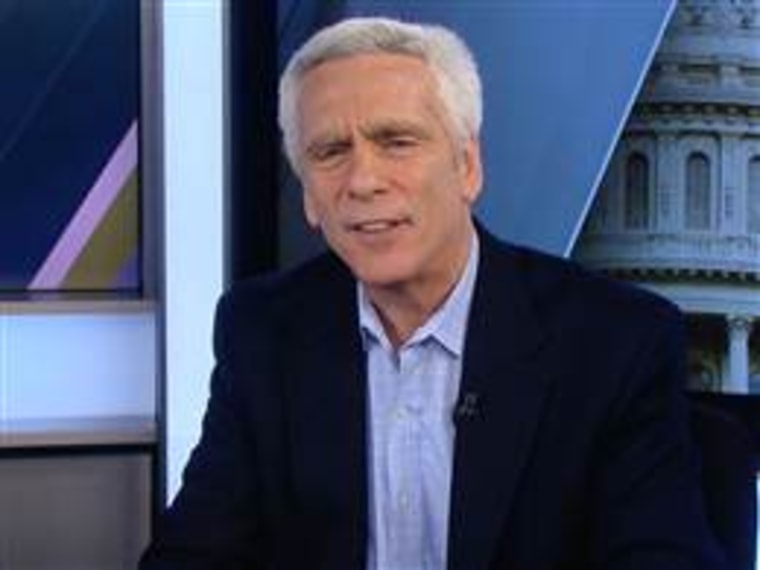Visit NBCNews.com for breaking news, world news, and news about the economy
The U.S. Economy added 88,000 jobs in March, well below the 200,000 that economists predicted. With politicians and pundits blaming the policies of sequestration and the end of the payroll tax holiday, Weekends with Alex Witt invited former chief economist to Vice President Joe Biden, Jared Bernstein to discuss the latest economic trends.
"Frankly, I was surprised by February's result which was a lot higher than I thought it would be, we actually added 268,000 [jobs] in February," Bernstein said.
Over the first quarter of 2013, an average of 168,000 jobs have been added every month, which is roughly equivalent to the longer 12-month average of 169,000 jobs per month, a plodding rate of increase, but enough to reduce unemployment over time.
Former Obama Administration Councilor Austan Goolsbee delivered a not-so-charitable interpretation of the data on Friday, telling CNBC that the report amounted to, "a punch to the gut," and adding that, "I think now you're going to interestingly start seeing a lot of discussion that maybe the sequester’s a bigger deal."
Bernstein argues that the weak labor statistics are more related to the 2% payroll tax break that ended in January as part of the Fiscal Cliff negotiations, saying, "I don't think the sequester is a big deal in these numbers yet...we saw for example that retail sales were down 24,000 in terms of jobs, that could be because people are feeling more of a pinch in their paychecks."
It's more likely, Bernstein added, that sequester cuts will be felt in the second half of the year, "government policy is a problem right now...you'd sort of like to have Congress at least take a Hippocratic oath and do no harm." But what economists want, and the country needs, is politicians to give the economy a boost instead of another fiscal pitfall.
